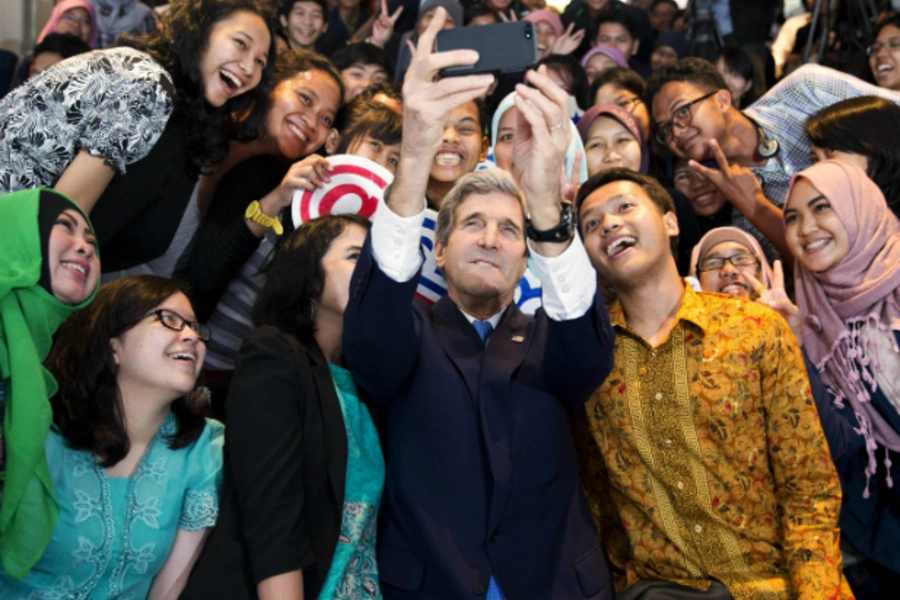Assessing John Kerry’s Visit to Jakarta

More on:
Secretary of State John Kerry’s visit this weekend (U.S. time) to Jakarta was brief, packed into his whirlwind Asia trip. His short stay in Jakarta was understandable—I think Kerry, despite criticism that he has focused too much on the Middle East, has put in enough of the face time in Asia to justify his claim that he has continued the administration’s policy of re-engagement with Southeast Asia. The fact that Kerry chose to give a speech in front of an audience of students at a cultural center highlighted some of the American embassy in Jakarta’s soft power efforts in the archipelago. And I certainly would agree with most of what Kerry said in his speech on climate change and the threat of global warming—that climate change is a near-apocalyptic threat to the world, that the science about global warming is settled, that Indonesia is one of the developing nations most likely to be affected by climate change, that global warming could prove a death blow to many parts of the archipelago.
Kerry had some notable lines in his Jakarta speech, like calling climate change “perhaps the world’s most fearsome weapon of mass destruction.” I also do not question Kerry’s personal commitment to combating climate change, since it has been an important issue for him for many years, and he was one of the first leaders on global warming in the Senate.
The trouble with the speech was not the science on climate change and its effects but rather the style and framing of the speech and the disconnect between it and the lack of American action. Calling for developing nations like Indonesia to shoulder some of the burden of reducing global warming while offering few concrete steps the United States will take simply is not going to work. People in developing nations, including Indonesia, resent being lectured to on global warming by American politicians, and they resent it even more forcefully when the United States has no clear strategy for addressing global warming. Previous speeches by other American leaders in developing nations, including in Asia, have been poorly received precisely because the United States appeared to be lecturing while avoiding the heavy lifting on climate change, and I am surprised that Kerry seemingly did not study the reception to previous similar talks. The fact that developing nations, including China and Indonesia, have now become some of the biggest emitters of greenhouse gases is not going to change the perception that the United States has been the biggest emitter for decades and that the United States needs to be the global leader on addressing the problem.
By the way, I don’t consider “a new agreement [with China] on an enhanced policy of dialogue that includes the sharing of information and policies” on global warming significant leadership on climate change. And at home in the United States, the Obama administration has done even less than “an enhanced policy of dialogue.”
Just telling countries like Indonesia that they are now big emitters and so they should take a stand will not work. (Kerry said “I call on all of you in Indonesia and concerned citizens around the world to demand the resolve that is necessary ... Make a transition towards clean energy the only plan that you are willing to accept.") And offering people in developing nations bland platitudes on global warming may well cause them to be even more insulted.
To wit:
More on:
 Online Store
Online Store
